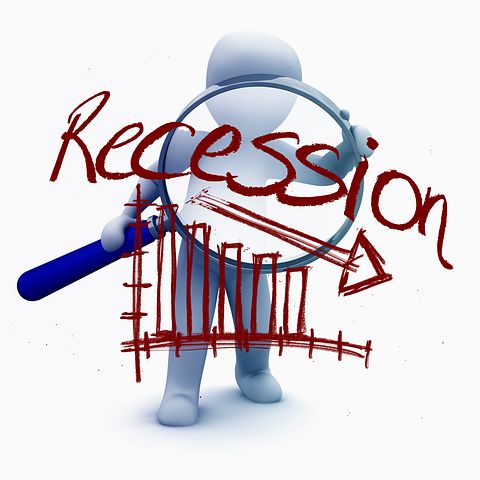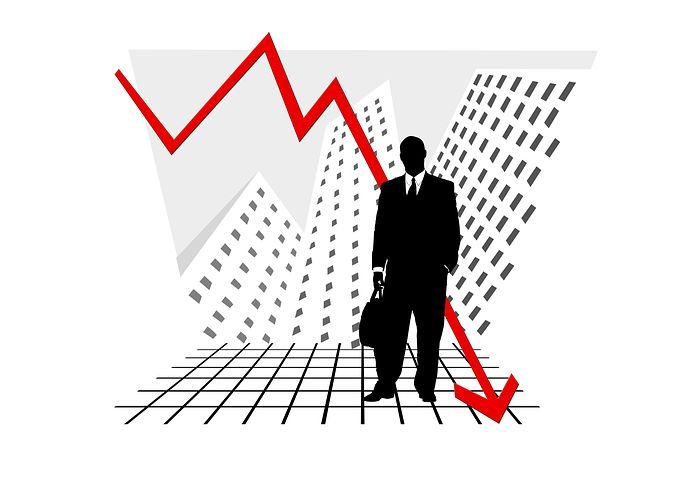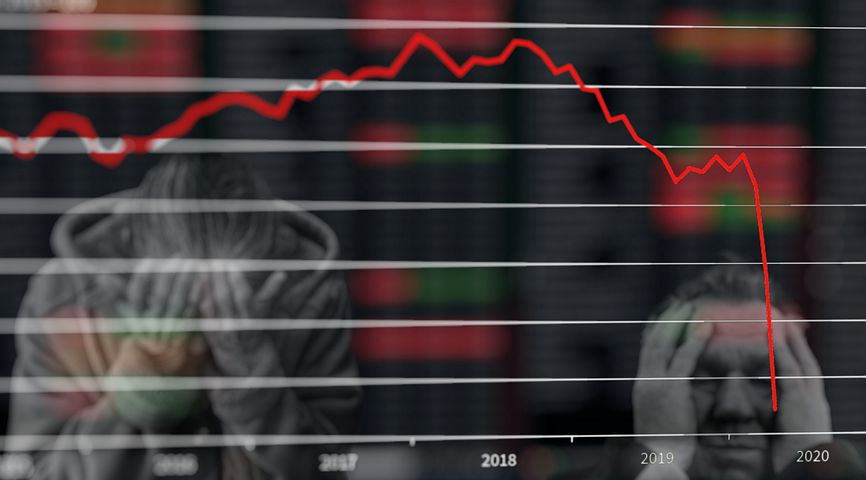Are you worried that the global economy is in a looming recession? With the rising prices of basic commodities, you’re not alone. Economic downturns are brutal for everyone. Whether you’re at risk of being unemployed or worried about where you’ll get the money to pay your bills, it’s important to know it’s features as they vary in duration, scale, and severity.

One can characterize a recession as a downward movement in a country’s business cycle with a significant decline in GDP and employment. A recession causes decreased spending and income, which slows economic activity. It is also often felt in one country only, but with increased globalization, a recession in one country will likely affect other countries as well.

If a recession isn’t here already, many economists estimate that it is coming very soon. The largest in the world, the US economy contracted by 1.6% in the first quarter of the year, and even if it somehow doesn’t contract in the second quarter, a growing number of economists are predicting a recession for 2023.
There’s no doubt it’s a bad time for the global economy right now, with inflation reaching 40-year highs and central banks threatening a series of rate hikes.

It’s also a bad time for the crypto market, seeing as how prices have fallen steeply around the same time that economic activity has shrunk.
However, opinion is mixed on whether we’ll see a severe recession in the coming months (or years), and it’s also mixed on whether any such recession would have a big impact on major cryptoassets. That’s because there’s an argument that cryptoasset prices aren’t correlated with the global economy so much as stock markets, which could rally again if inflation subsides and rate increases stop.
- RECESSION HITTING CRYPTO
Many economists and analysts seem to agree that the US and many other developed economies are already in recession, given that the technical definition of a recession is two consecutive quarters of negative growth.
The squeeze on people's disposable incomes caused by high inflation has had a big negative impact on stocks and crypto markets, and has probably already pushed the US economy into recession. Recent surveys of consumer confidence are showing their worst readings for decades, people are feeling the pain and are cutting back on investment as well as on spending

Despite a general consensus that the economy is shrinking right now, some commentators also highlight the role, not just of inflation and rate hikes, but also of a steep withdrawal of fiscal support.
While there’s little doubt that advanced economies are already contracting, if not in an outright recession, analysts aren’t entirely convinced that things could be bad for long. This holds out hope that the current bear market may not overstay its welcome.

For the immediate future, I'm actually fairly optimistic, because commodity prices are plummeting. Oil, gas, copper, cotton, wheat, corn, and many other vital commodities are now way below their peak prices, and this should help to bring inflation down quite soon.
Indeed, oil prices have been falling repeatedly over the past few weeks, dragged down by recession fears. This may end up instigating some kind of self-corrective mechanism, with the reduced prices eventually prompting more economic activity and growth.
Hopefully that will mean the US economy starts to recover quickly, but how long this relief will last is anybody's guess. We're now in a highly volatile economic environment, so it's almost impossible to look much further ahead with any degree of confidence
While there’s a chance that any recession could last more than a few quarters,Economics analysts suggests that it won’t be especially severe or deep. This is largely because it would be part of an almost naturally rebalancing of the economy, away from excessive liquidity.
We have reached the limits of pumping liquidity into the system . As a result of this the Fed will be very reluctant to ease until the whites of the eyes of deflation are quite clear.
Implications for a prolonged period of underperformance, notably for the equity market are clear and are far from profound given the elevated level of excess liquidity
In this environment, one expects BTC, US long bonds, and gold to be top performers, although we should accept the fact that there will be bumps in the road as the economy gradually stabilizes.
- WHAT IS THE WAY OUT ? ANY EXIT STRATEGY AVAILABLE??
While an improvement in economic performance would ultimately be beneficial for the crypto market, what it really needs, I feel is an improvement in the performance of stocks.
Economic analysts are of the opine that we don't need a return to economic growth to kick-start the crypto market, we need a recovery in the Nasdaq index of tech stocks. Cryptos have been highly correlated with the fall in the Nasdaq since November 2022.
Basically, this prediction suggests stocks will rally as soon as inflation starts declining and the Fed indicates it will stop (or lower) rates. Of course, when this is going to happen is anyone’s guess.
Regardless of when economic growth returns, it’s quite predictable that bitcoin will still be a better bet than most other assets, particularly when we return to a low-inflation environment. However, I’m not necessarily as optimistic about most other cryptoassets though. Speaking on CNN on Monday, hedge merchant, Michael Saylor suggested that Bitcoin is a form of salvation for people suffering from rising prices and currency devaluations helps to buttress the above mentioned point .

In conclusion, to adequately get prepared for this impending and looming economic recession it is advisable to make debt payment a top priority, actively develop one’s career , create a budget , create new streams of income and ultimately build an emergency fund or so to say “a rainy day fund” .
Posted Using LeoFinance Beta